"The Smells, Sights, and Terrifying Explosions: Everything Comes Back to Me Just as It Was"
Gadi Weissman was wounded in the Second Lebanon War, witnessed deaths and injuries around him, heard the loud explosions, and struggled to return to his normal life. Now, witnessing the war up close, he pleads with soldiers: "Get help immediately after leaving Gaza so the trauma won't haunt you for life."
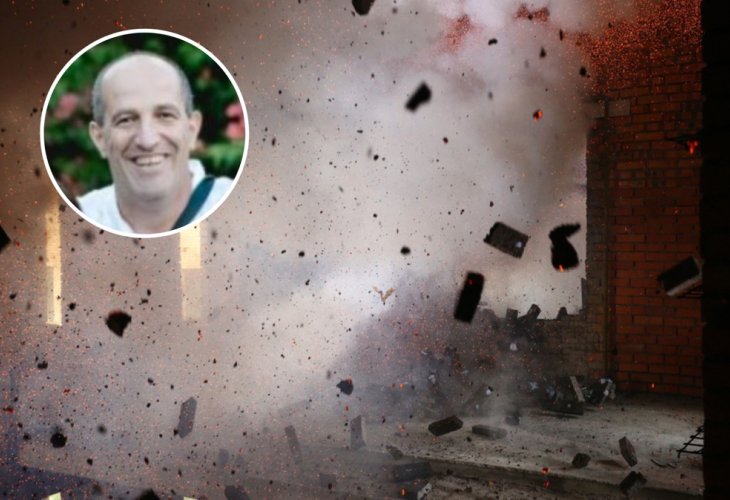 (Photo: shutterstock)
(Photo: shutterstock)(Photo Credit: Alon Wagenfeld, Nir Sha'ani, and Chen Glosser)
Gadi Weissman vividly remembers what happened to him on the outskirts of a Lebanese village, about 18 years ago. They were inside a house in Lebanon, all alert and awaiting the order to charge, when a huge explosion was heard. One of the soldiers standing beside him was hit in the shoulder, another was critically wounded. The deafening noise has not left him until today, so many years after the war ended.
"Don't ask me how I'm doing these days, because I'm completely haunted," Weissman says these words with a deep sigh. Like all of us, he closely follows the developments of the war in Gaza, worried and anxious about the safety of our dear soldiers. But unlike all of us, it also causes him extreme symptoms of nightmares, insomnia, and severe reactions that make him tremble when he talks about them.
"I feel as if I am myself returning to the battlefield," he explains with a choked voice, "I hear the sounds, smell the odors, everything comes back to me as if I am in the battle. Moreover, today I have a daughter who is serving in the IDF, and I am naturally very worried and anxious for her safety."
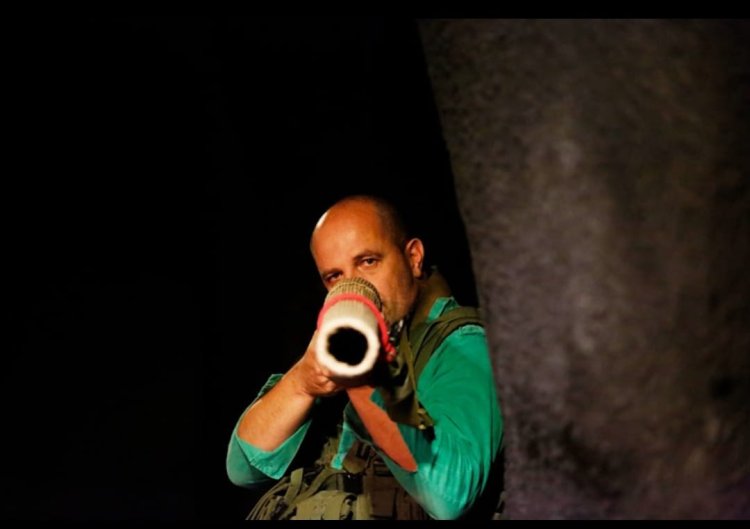
Disaster in the Lebanese House
Weissman served in the Second Lebanon War as a reserve soldier; he lost friends, was injured in his leg, and mainly experienced post-trauma that accompanies him to this day.
"Before the war, I was married with two children, just a regular family with a peaceful and healthy life, and then the war broke out and I was called up with an emergency reserve duty," he recounts. "Unlike the current war, in the Second Lebanon War it only took us a few days to organize and break into Lebanon. But even before we managed to enter, a terrible disaster struck our forces when 12 soldiers from our unit were killed in an incident in Kfar Giladi after a Katyusha rocket fired from southern Lebanon hit them directly. They didn't even have the chance to fight. A few days later we were already in Lebanon, and I was injured in the leg from friendly fire, meaning – crossfire from our forces onto our forces."
Weissman's injury was relatively light. "A rifle bullet pierced through my leg and exited, creating a hole and a deep and severe burn," he details. "Naturally, I was evacuated quickly, along with seven other wounded and a fatality. Thus, my activity in the Second Lebanon War actually ended."
The battlefield activity ended, but its consequences have, as mentioned, accompanied Weissman to this day. "I fought for only a few days, but the horrific scenes I witnessed don't leave me," he shares. "My recovery initially focused solely on the leg injury, requiring surgery and then physiotherapy, as I lacked a muscle in my leg. All of that is now behind me. But the harsh sights, the smell, the fire, and the smoke – these are things I cannot erase from my memory."
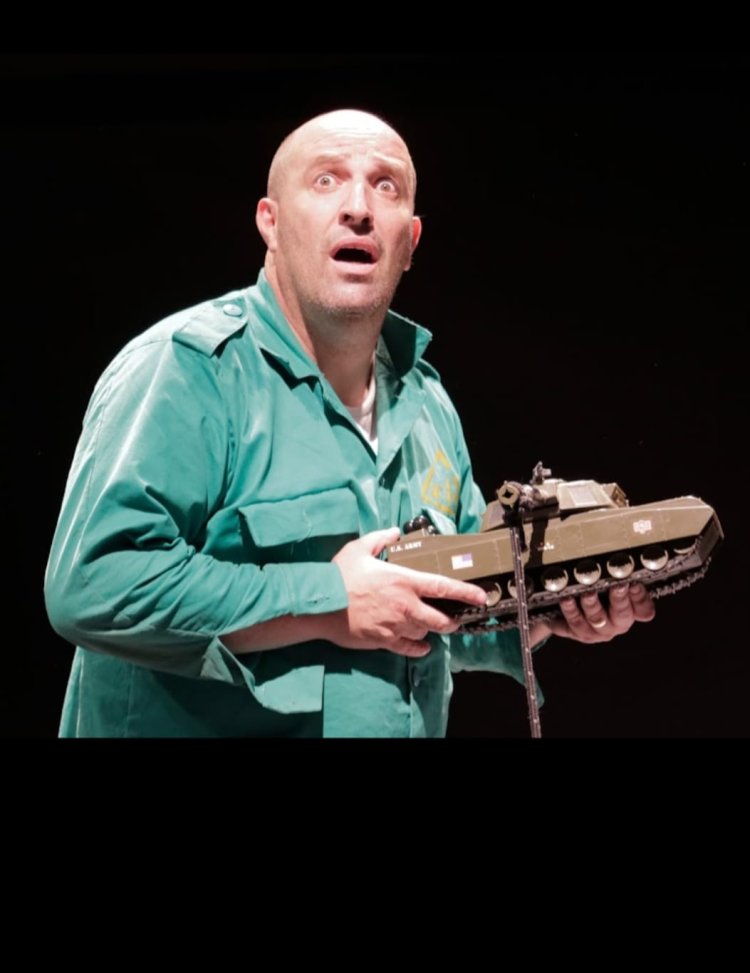
How did your life look after you returned home?
"Since I was already married and a father to children, I had no choice and it was clear that I had to return to functioning, but I couldn't. The thoughts haunted me all the time, everywhere. In the morning, I couldn't get out of bed, even smiling at my family was impossible, I would lay in bed for hours, seeing everything around me as dark and unable to do anything. I didn't return to work. It was impossible. The whole world became a nightmare, every sound startled me, every small explosion of a balloon took me back to the battlefield. I felt that my life had halted and turned into a big mass of nightmares. I always suffered from attention and concentration problems, but these issues developed and worsened due to the trauma. I felt that I couldn't escape this terrible cycle."
And how did your wife cope with the situation?
"My wonderful wife is a true heroine - she took everything on her shoulders, managed the house, filled my place, cared for the livelihood and also took care of the children. It was very hard for her to see me suffering, but she had to continue with life, for herself and for the whole family, so that we wouldn't collapse."
Meanwhile, Weissman began undergoing a series of treatments with a psychologist, which, according to him, saved his life and quality of life. "In those days, seeking psychological treatment was less acceptable, but I understood it was the only way, so I invested a lot of time and money into it. I would go to the psychologist three times a week and talk about everything; he was really close to me, and during the initial months, I felt these conversations were the only thing keeping me together."
The psychologist was also the one who encouraged Weissman to use his skills and study medical clowning so he could bring joy to sick children in hospitals. "The idea was that to get out of my distress, it would be best for me to cheer others up, and it turned out to be a very helpful idea," he reflects. "Later, I was offered to study puppeteering – leading groups through puppet theater, and I decided it could go well with the medical clowning, so I enrolled in those studies as well."
Do you feel that the new occupation helps you forget the trauma from the war?
"Anyone carrying post-trauma knows you can never forget it, and it surfaces everywhere all the time. Even today, I feel it all the time, but thanks to the treatment I underwent and my determination to continue living, I have tools to cope."
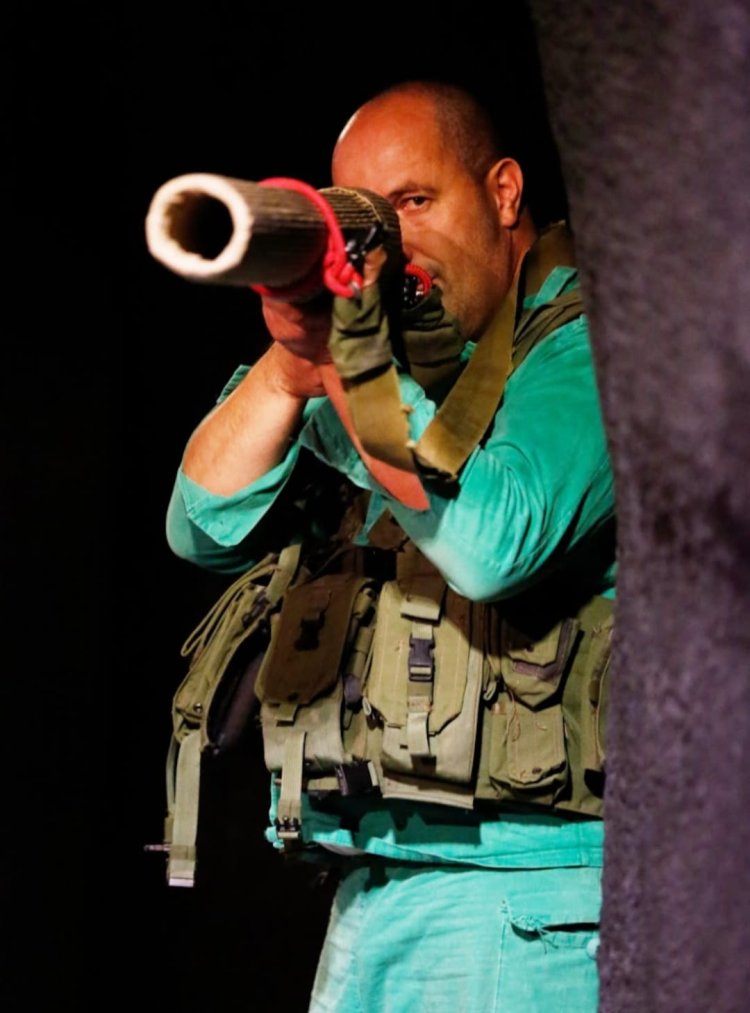
"Get Treated Immediately, Don't Wait"
The post-trauma symptoms that have accompanied Gadi over these recent years also led him to decide to produce a special puppet theater show dealing with post-trauma. "I met Adam Yelin during those days, who was very enthusiastic about the idea; he became a good friend and also the director of the play. Together with him, I decided that the play should not include many words, rather mostly silence, a pantomime performance, and an opportunity for people to feel a bit of what we experience." For the play, Weissman created special puppets, and he managed to perform with the show before groups of civilians, soldiers, and special unit members. "In the play itself everyone remains silent, but after it ends, I dedicate special time for questions and answers, trying to guide the audience and explain a bit more about the phenomenon, as nowadays it is understood that no soldier leaves the battlefield without some form of post-trauma, and the most important thing is not to underestimate it but to seek treatment."
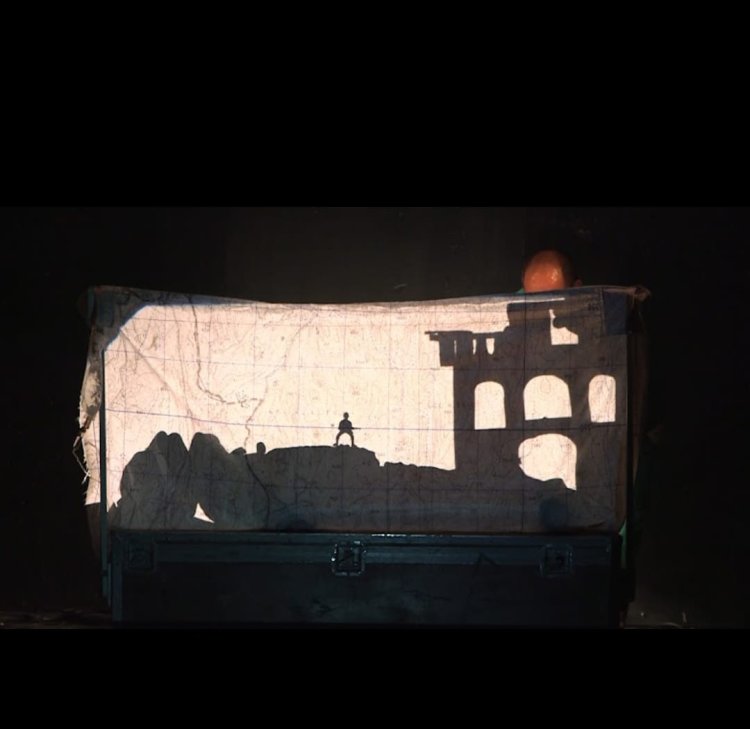
These days of war, do you think about what awaits our soldiers afterwards, once they return from the battlefield by God’s help?
"Of course, it crosses my mind, and I can't stop thinking about it. But I am also encouraged because I believe there are more ways now than there were in my time to learn how to cope and live with the effects of war. There are also organizations that help and a lot of awareness. I hope very much that soldiers who will be discharged after this war will know to seek correct psychological treatment for themselves. It's a shame for them to suffer because post-trauma can sometimes be harder than a physical injury, and I say this from experience."

